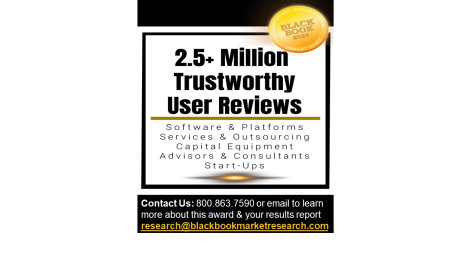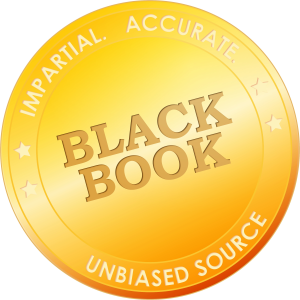Advanced Provider Data Management Technolgies Drive 2025 Credentialing Systems Overhaul, Black Book User Survey

TAMPA, Fla., August 28, 2024 (Newswire.com) - Clients affirm that credentialing software and provider data verification and monitoring services, which are redesigned to effectively streamline and manage the validation process of healthcare clinicians' qualifications, hold significant potential to improve patient care when effectively implemented in crucial areas.
A Black Book Research survey of 1,710 health systems, payers, and physician executives revealed that 71% of healthcare organizations using various provider data credentialing methods have encountered significant challenges in navigating the complex and continually evolving regulatory landscape. Additionally, despite expectations for improvement, 16% of respondents reported that their current provider data management systems have essentially failed to ensure compliance and ease administrative burdens on staff.
In Black Book's Q3 2024 survey, an impressive 93% of the 408 hospital credentialing managers expressed strong optimism about the transformative potential of innovative provider data platform technologies. They believe that advanced solutions will greatly enhance operational efficiency, ensure compliance, and elevate revenue cycle management. These managers (85% of respondents expressing dissatisfaction with currently implemented vendors) claim to be seeking replacement system budget funds for 2025 are confident that these technologies will streamline processes, reduce administrative burdens, and boost overall performance. Furthermore, 82% of respondents identified a key goal: to address and prevent any revenue losses associated with existing credentialing software, highlighting the crucial importance of adopting these cutting-edge advancements.
symplr emerged as the top-rated credentialing program, achieving an impressive 13 out of 18 top scores across key performance indicators, solidifying its position as the best client-rated vendor in the industry in a field of 44 competitive vendors.
Respondents identified key areas for improvement in their organizations, highlighting opportunities to enhance patient care in order:
- Incomplete or Inaccurate Data (68% of respondents): Addressing issues with data accuracy is crucial to ensuring that only fully qualified and credentialed healthcare providers are authorized to practice, thereby maintaining high standards of patient care.
- System Errors and Downtime (54% of respondents): Reducing software bugs, glitches, and outages can significantly improve the credentialing process, preventing staffing shortages and ensuring that all personnel, including temporary staff, are thoroughly vetted.
- Data Security and Privacy Concerns (31% of respondents): Strengthening data security measures can protect sensitive information, maintain trust, and ensure the smooth operation of healthcare facilities.
- Lack of Integration with Other Systems (22% of respondents): Enhancing integration with other organizational systems, such as EHRs and scheduling platforms, can improve communication and reduce the risk of errors in patient care.
- Inadequate Customization (21% of respondents): Tailoring credentialing solutions to meet the specific needs of different payers, providers, and hospital types can close gaps in the credentialing process and improve overall efficiency.
- User Training and Usability Issues (20% of respondents): Investing in user-friendly software and comprehensive staff training can minimize data entry errors, prevent misinterpretations of credentialing statuses, and accelerate the credentialing process.
- Regulatory Non-compliance (16% of respondents): Regularly updating credentialing software to comply with current standards can help organizations avoid compliance issues, ensuring that patient care quality remains high.
- Cost and Resource Allocation (8% of respondents): Optimizing the cost and resource allocation for credentialing software can free up more resources for direct patient care, ultimately enhancing care quality across the board.
“Addressing these issues necessitates replacing currently underperforming credentialing software with more reliable, integrated, and customizable solutions,” said Doug Brown, President of Black Book Research. “Both providers and payers are increasingly turning to technologically-advanced credentialing software solutions, which are proving to be powerful tools in enhancing operational efficiency, ensuring compliance, and ultimately improving patient care.”
About Black Book
Black Book Market Research LLC, its founder, management and staff do not own or hold any financial interest in any of the HIT solutions vendors covered and encompassed in the surveys it conducts, including symplr. Black Book reports the results of the collected satisfaction and client experience rankings in publication and to media before firm notification of rating results and does not solicit survey participation fees, review fees, inclusion or briefing charges, or involve consultant firm collaboration with Black Book before the announcement of the polling outcomes.
For Black Book vendor satisfaction rating methodology, auditing, resources, comprehensive research and ranking data see www.blackbookmarketresearch.com or contact Research@BlackBookMarketResearch.com
Source: Black Book Research
